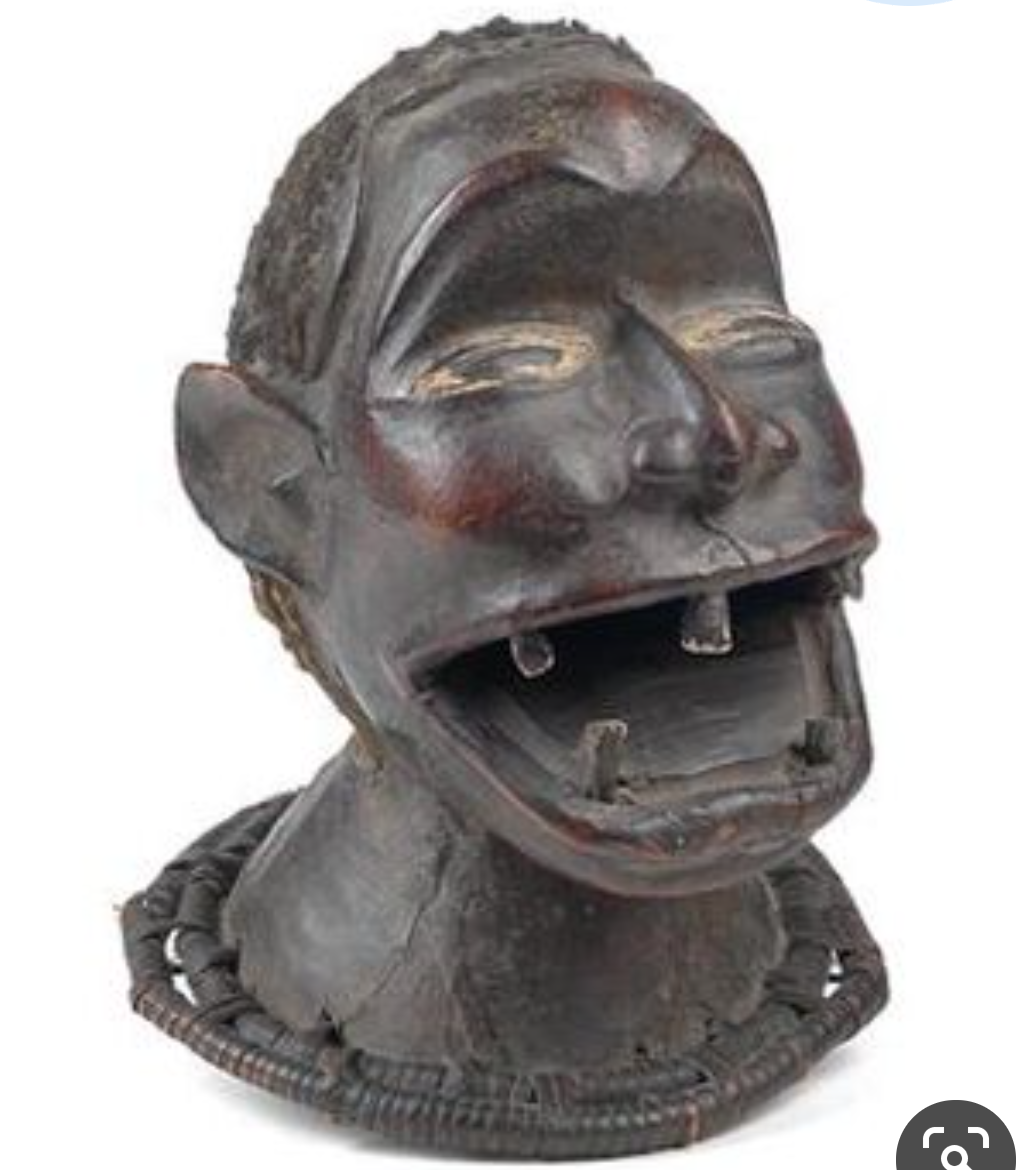 |
| Large Ekoi head (dance crest) made of wood of Ekoi, Ejagham ethnicity |
24 May 2020
There seems to be a lot of confusion on the true distinction and identity marker between what is termed ‘Ekoi’ and ‘Ejagham’ grouping of peoples found in Cross River State of Nigeria.
The origin of the Ekoi grouping or classification is traceable to Talbot (1915, 1926). It was intended to carve an identification marker for all the other ethnic groups found around the lower and upper Cross River in the south-easterly-most part of Nigeria, outside the Efik/Ibibios and the Ibo groups.
The Ekoi grouping encompasses the Ejaghams who occupy most of the stretch of land from the current Northern Senatorial District to the Southern Senatorial Districts of Cross River State. The Ejagham space also spans beyond Cross River State in Nigeria to most of South-West Camerouns.
So, the distinction between Ekoi and Ejaghams in Cross River State is to be found in the fact that all the Ejaghams in Cross River State are classified as Ekois but not all the Ekois can be classified as Ejaghams.
Both linguistic and dialectical commonality among the Ejaghams and the transcending of international borders in existing settlements provide the common identity marker and a tabula rasa for their recognition as a distinct but related ethnic group to the Ekois. The Ejaghams of Cameroun are not classified Ekois from the oringin for all intents and purposes.
Ejagham language and its dialects of all shades and hue understand for instance: ‘Ba-kor’ meaning ‘come – take,’ among many other such common words and expressions. Many other common words and terms, albeit with slight slants in pronunciation are easily and commonly understood by all Ejaghams such as in the naming of their Kings and Chiefs: ‘Ntufam’ – ‘King of the Town’; ‘Ntui, Ntol, Ntul, Ntoe’ (Chief) – (plural: Attui, Attol, Attul, Attoe: Chiefs) are commonly known and differently used for the same purpose.
Similarly, the naming of their towns, villages and places of sojourn are mostly linked to totems, events, activities, unique occurrences, stones, and the characteristic behavior or significance of the cross river (their ‘holy river’) and other rivers around where they are settled.
So, we have say along the Cross river from its beginning: ‘Ndib-aya’ – ‘bottom of the river’ in Cameroun; Aya-Ossor now corrupted as Ajassor (upper part of the River); Ekim-aya – berthing place on the river; and ‘Efri-aya’ – spinning or turbulent place of the river’ (now corrupted as Efraya, headquarters of Etung LGA).
Further down the river is ‘Ekom – aya’ : ‘strength of the river’ (now corrupted as Ikom – Headquarters of Ikom LGA). Similarly, in Ogoja there is ‘Mon-aya’: ‘child river’ and ‘Ishi-aya’: head of that river. That mon-aya and ishi-aya are so called stands to reason that the original migrant had known of a bigger river from where they migrated among their Ejagham kith and kin.
Names of many other places in Ejaghamland are also replete with meanings that can be commonly understood by Ejaghams. We have for instance: ‘Ekuk-atai’: ‘mount of rocks’;’ Etai-ara’: ‘rock of stones’ (now corrupted as Etara); ‘Nsi-ofang’: ‘land of wealth’ (now corrupted as Nsofang), ‘Mbenkpen’ – ‘I came to live life or to survive found in both Nde – Ikom LGA and Ibil – Ogoja LGA, and countless other examples.
In Cross River State, the Ejaghams are mainly settled and found in the following LGAs: Akamkpa, Akpabuyo, Bakassi, Calabar Municipality and Odukpani LGAs (Southern Senatorial Districts), Etung and Ikom (Central Senatorial District and Ogoja LGA (Northern Senatorial District; a sprinkle of them may also be found in Yala LGA at the proximal areas of Yala-Ikom-Ogoja boundary axis such as Ntrigom area).
See attached Map of Cross River State for a clearer picture and perhaps better comprehension.
I hope this enlightens and informs us as to the actual distinction between Ekoi and Ejaghams in Cross River State.
Ceejay Ojong
An enthusiast of traditional anthropology and settlements/migration history
Abuja
23.05.2020










